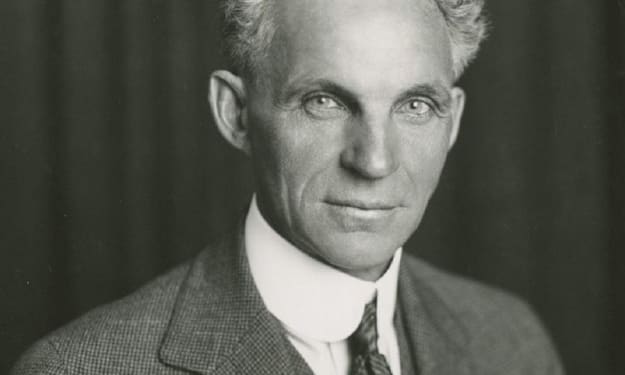
The World Table Tennis Championships in Nagoya, Japan in 1971 marked a change after a friendly meeting between table tennis players Glen Cowan and Zhuang Zedong of the USA and the People's Republic of China (PRC). After two decades of hostility between the two countries fueled by the Cold War ideology and memories of the Korean War the trip was called "ping pong diplomacy" by the American media and led to the visit of some famous Americans to China. It tells the bizarre and tragic story of how a top-level game in the Chinese government was used to cover the deaths of 3.6 million people by holding the World Tennis Cup during the Great Famine, the heroism of their players convicted and murder during the Cultural Revolution, and the survivors reunited to shake their American counterparts in 1971.
One of the first public signs of better relations between the United States and China came on April 6, 1971, when the American table tennis team in Nagoya, Japan received a surprise invitation from Chinese counterparts for a paid visit to the People's Republic at the 31st World Table Tournament. This historic trip to China marked the beginning of the so-called "ping-pong diplomacy," which laid the foundation for a formal relationship between the United States and China. The ping-pong diplomacy era began twelve months earlier when an American team from the Nagoya Table Tennis World Championships received an invitation from their Chinese counterparts to visit China.
The table tennis game known as the "Ping-pong diplomacy," which marked China's 1971 invitation to visit the US tennis team in Beijing, China, led to the visit of former US President Richard Nixon to China the following year and the normalization of US-China relations. As a result of ping-pong diplomacy, exchanges between table tennis players from the United States and the People's Republic of China led to the visits of Henry Kissinger, National Security Adviser to the People's Republic of China in 1971 and President Richard Nixon in 1972 to China. Table tennis has returned to the United States from Chinese tennis teams, and table tennis was a fitting symbol of the relationship between the two countries, with Beijing telling reporters at the time that both countries were showing a change in their openness.
It was an exciting reunion between two new tennis players, American Glenn Cowan and Chinese team captain Zhuang Zedong, who helped break the ice between the two Cold War forces. Unexpectedly, Cowan boarded a Chinese passenger bus when Zhuang, then in his early 20's, approached him and shook his hand. Most of the red-haired national team looked at Cowan suspiciously, but Zhuang - the team's biggest player - approached, shook Cowan's hand, and spoke to him through an interpreter.
Chinese team captain Zhuang Zedong unveiled US-amp. Glenn Cowan with a silkscreen of China and the Huangshan mountains as they disembarked from a Chinese group bus, which was quickly interrupted by media and cameras. As part of the American team, Chinese players were greeted by Chinese officials, and their reception was the first by the Prime Minister of the People's Republic of China, Zhou Enlai, who greeted the players. A historic audience with Chinese Prime Minister Zhou Enlai was the official act when he congratulated the American team at the tennis table and the players for opening a new chapter on American-China relations. It was his very short time.
In April 1971 an American team of tennis players and table tenants visited the Great Wall of China. United States Tennis Team Nagoya, Japan 1971 World 1971. The Table Tennis Championships in Nagaya, Japan, United States received an invitation to visit the People's Republic of China on April 6. On the day of the opening ceremony, the Chinese team sent teams from Canada, Colombia, England, and other countries to China. and Nagoya; the world was a global focus according to the Table Tennis Championship.
An American tennis player trains with Chinese tennis players in April 1971 in Beijing, China. In this photo on February 7, 2009, US Deputy Secretary of State John Negroponte (center right) and Chinese Deputy Foreign Minister Wang Guangya (center right) watch a ping pong commemorative game during a match following a Chinese invitation to US ping pong to visit Beijing -1971, known as the Ping pong Diplomacy. American Leah "Miss" Neuberger, the 1956 Mixed Doubles Champion and nine US Open winners in women's singles, traveled with Chinese invitations to Canada to participate in the Combined American Table Tennis Teams.
While the United States accepted the official invitation to travel to China for the exhibition, the Chinese team rushed to make arrangements. Zhou Enlai and Mao Zedong agreed to disagree but when Mao saw the news in Cowan Reference News, an internal newspaper accessible only to senior government officials, he decided to invite a US tennis team to join him. China has also applied for a visa for American actress Leah Miss Neuberger, who in 1956 became a double world champion and won the US Open nine times, and a Canadian tennis team invited by China to visit.
The events leading up to the incident [5] began when rebellious American player, Glenn Cowan, missed his team's bus in Nagoya during training for the ninth World Cup. "I understand that the American Hong Kong tennis team is on its way to China. It will consider the Chinese sports team's invitation to stay there if necessary, and that the relevant US-China National Relations Committee expects that during the US visit the committee will raise funds to support the Chinese team if the invitation is





Comments
There are no comments for this story
Be the first to respond and start the conversation.